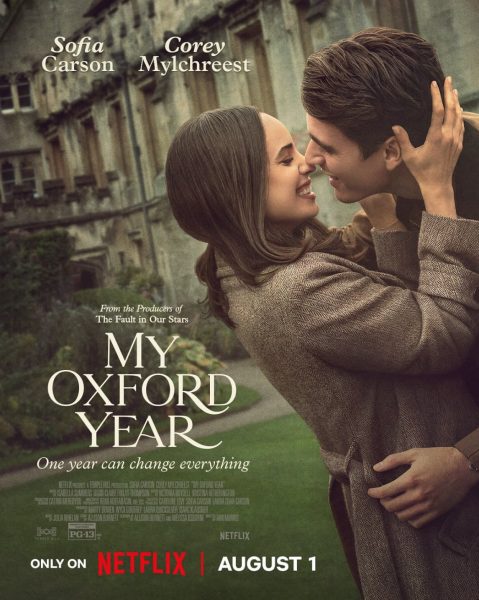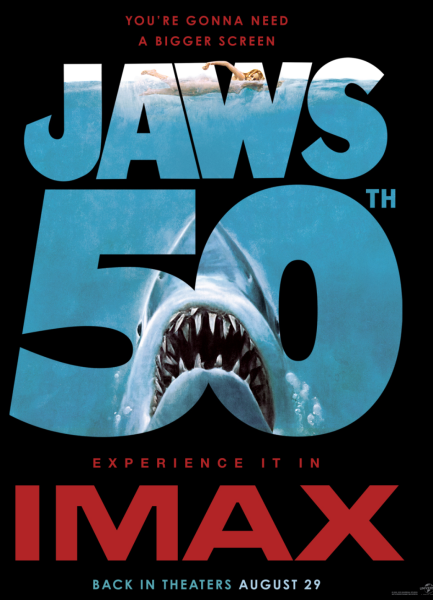“Elvis” is Every Fan’s Dream
In the third grade, my classmates and I had to make a presentation on our biggest inspiration. Everyone chose their mom or dad. I could not choose between my parents, so I went with the next logical choice: Elvis Presley.
I chose Elvis as the basis for all of my class projects. I borrowed countless biographies on the King from my local library. I had a 3D poster of Elvis hanging in my room that mimicked the “Jailhouse Rock” dance. My alarm clock had Elvis’ face plastered on it. My favorite song as a child was Elvis’ “An American Trilogy.” Every Christmas to this day, I rifle through broken CD cases to find Elvis’ Christmas album.
It is safe to say that I was nervous for the “Elvis” (2022) biopic. I needed it to live up to my expectations. I needed it to validate my lifelong obsession. And it did.
“Elvis” far exceeded my expectations. It is now my all-time favorite movie. I saw it in theaters twice, and yet I am filled with the same melancholy over not seeing it a third time as a normal person would feel at not seeing the movie at all.
Director Baz Luhrmann was the absolute best fit to tell Elvis’ life story. His style is distinct, with a history of producing decadent films that are perfectly over-the-top. Luhrmann’s filmography includes masterpieces like “Moulin Rouge!” and “The Great Gatsby,” both of which are filled with color, flash and sparkle.
Luhrmann’s filmography certainly isn’t notable for its length; rather, he seems to pick and choose his films, pouring his all into cinematic showpieces. His films are special gems in movie theaters full of spinoffs, sequels and throwaways. They capture that special movie magic that Nicole Kidman references in her AMC ads. (We won’t talk about how Kidman probably hasn’t stepped foot in a movie theater in three decades.)
A biopic would not do Elvis justice without the right amount of flair. “Elvis” begins perfectly: deep crimsons, blacks and shiny golds blurring on the screen as the film oversees Elvis’ Las Vegas era. Elvis’ years-long Las Vegas stint was filled with bedazzled pantsuits and capes, so Luhrmann’s iconic direction style perfectly parallels the extravagance of the end of Elvis’ career.
The timeline of the movie is also well-done. “Elvis” starts with a quick overview of the end of Elvis’ career, before introducing the character of Colonel Tom Parker, who acts as a narrator. The timeline is scattered, which matches up with the concept of the Colonel narrating during his physical demise. The audience watches the film as if we are active participants in Elvis’ career, forced to view it through the Colonel’s hazy lens.
This analysis brings me to another triumph of “Elvis:” the cast. I have to admit, I was wary. Okay, I wasn’t wary — I was terrified that Austin Butler would ruin Elvis for me.
Butler was not an actor before “Elvis;” he was an extra. He was the forgettable cute guy on “Zoey 101.” He was the forgettable cute guy on “Hannah Montana.” He was a child actor that Nickelodeon and Disney Channel kept in their back pockets.
On top of his worrisome lack of experience, Butler does not look like Elvis. He just doesn’t. Butler is a tall, lanky California surfer-esque blond man.
Butler could have ended his career if he did not give the performance of a lifetime in a heavily advertised biopic about one of the most famous musicians in history.
The makeup and costumes department on “Elvis” aided in Butler’s transformation, changing his hair and body, but also his skin and bone structure. They added facial prosthetics to transform his jawline and facial features into Elvis’. But it was Butler’s dedication to the project that led to an Oscar-worthy performance.
There were times in the theater when I forgot whether the person on screen was Butler or Elvis. I couldn’t tell if Butler was speaking or singing, or if they were playing Elvis’ voice. I watched Butler on stage as if I were watching never-before-seen footage of Elvis. My dad was convinced that footage of Elvis was somehow CGIed over Butler. I was in awe, and so was the rest of the audience.
Butler sang in Elvis’ voice and impersonated his mannerisms every day in order to prepare for the film. His method acting paid off. I cannot state enough how incredible his performance was. I can only implore you to watch the film for yourself.
I was also extremely worried about Tom Hanks’ performance as the Colonel after seeing the trailers, where his costuming and accent prompted concern. However, Hanks finally got to play a villain, and he did it well. Tom Hanks, America’s sweetheart, creeped me out. Job well-done.
Just as important as the acting and direction, I did not want the film to glaze over Elvis’ history with “Black music.” I did not want screenwriters to ignore Elvis’ history of covering and popularizing songs from Black artists and genres, thus profiting off of a marginalized community.
Elvis genuinely admired the soul and blues music he covered. He fought to sing that music; music that moved him and reminded him of his childhood. I genuinely do not believe that Elvis had malicious intentions. I think he was definitely naïve and ignorant. I also think his manager and music industry titans were largely behind his lack of acknowledgement for the creators and artists that jump started and supported his career, such as B.B. King.
The biopic’s handling of this topic is honest in showing that Elvis did not set out to profit off of Black artists, but he also did nothing to mark himself as a civil rights advocate despite the immense effects this surely would have had. This is not an attempt to frame Elvis’ relationship with Black artists in a positive or symbiotic light, but rather to say that I was fearful that the film would ignore the complexities involved in Elvis’ discography altogether and rather try to memorialize and sanctify him. Of course, this acknowledgement is the bare minimum, but it is unfortunately not a guarantee in the film industry.
“Elvis” succeeded in many ways. The acting, directing and costuming were remarkable. The storyline was engaging without straying too far from the truth, whatever that may be. But the main reason I love “Elvis” so much is because it made me feel something. It had my dad, a man who grew up in the 1950s and listened to Elvis albums on his record player, and myself, a woman who grew up in the 2000s and had to explain to my neighbor that Elvis was a real person, leave the theater close to tears.
Taylor Herzlich, FCRH ’23, is a journalism major and English minor from Mt. Sinai, N.Y.

Taylor Herzlich is a senior at Fordham College at Rose Hill. She is majoring in journalism with a minor in English. Taylor started writing for the Ram...













































































































































































































